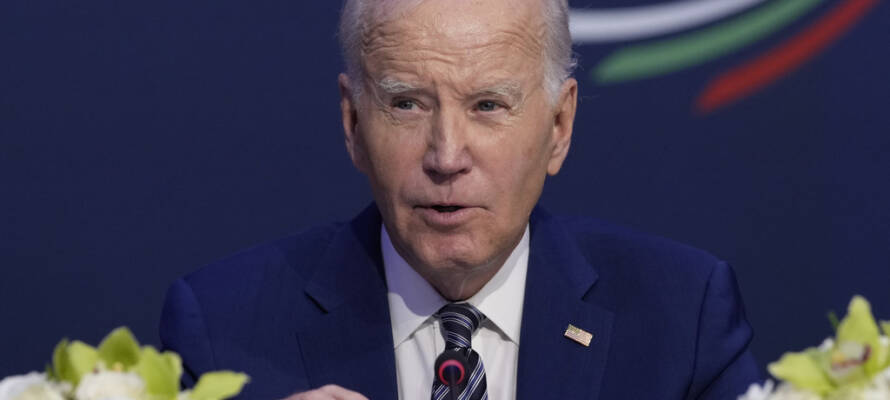Israel and the Middle East were not a focus, to say the least, during the US president’s speech.
By Andrew Bernard, The Algemeiner
US President Joe Biden on Tuesday barely mentioned Israel and the wider Middle East in his address to the UN General Assembly, which largely focused on US foreign aid and rallying international support for Ukraine to combat Russia’s invasion.
Speaking on the first day of speeches at the UN’s annual gathering of world leaders in New York, Biden touted the Eurasian trade corridor agreed to during the G20 summit earlier this month and briefly called for a two-state solution to resolve the Israeli-Palestinian conflict.
“The groundbreaking effort that we announced at the G20 to connect India to Europe — through the UAE, Saudi Arabia, Jordan, and Israel — will spur opportunities and investment across two continents,” Biden said. “This is part of our effort to build a more sustainable, integrated Middle East. It demonstrates how Israel’s greater normalization and economic connection with its neighbors is delivering positive and practical impacts, even as we continue to work tirelessly to support a just and lasting peace between Israelis and Palestinians — two states for two peoples.”
Biden did not directly refer to negotiations between the US, Israel, and Saudi Arabia to normalize Israeli-Saudi relations, though the State Department on Monday confirmed that those talks are ongoing despite a Saudi media report that they had been suspended over an inability to find a compromise on the Palestinian issue.
Biden also said that the US and its partners were working to “address” Iran’s nuclear program and destabilizing regional activities and that the US remains “steadfast in our commitment that Iran must never acquire a nuclear weapon.”
Biden’s speech on Tuesday largely focused on US aid and cooperation programs around the world, with significant sections dedicated to US support for Ukraine and his vision of US competition with China.
“When it comes to China, I want to be clear and consistent,” Biden said. “We seek to responsibly manage the competition between our countries so it does not tip into conflict. I’ve said we are for de-risking, not decoupling, with China. We will push back on aggression and intimidation to defend the rules of the road, from freedom of navigation, to overflight, to leveling the economic playing field, [so that] it helps safeguard security and prosperity for decades. But we also stand ready to work together with China on issues where progress hinges on our common efforts.”
Following the speech, Biden met with UN Secretary-General António Guterres. The US president is slated to meet with the leaders of several central Asian countries and host a diplomatic reception later on Tuesday. He is also scheduled to meet with Israeli Prime Minister Benjamin Netanyahu on Wednesday.
